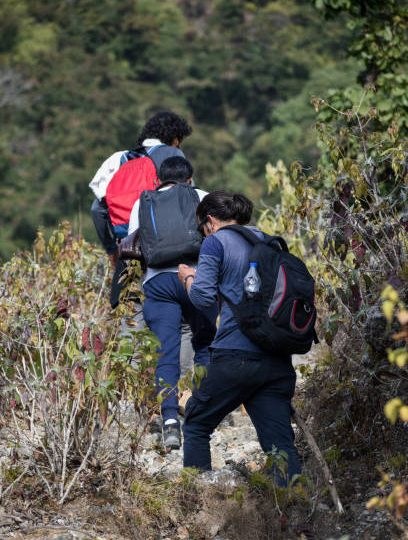The taxi is running late. It is a good idea to use the word “late” (a synonym for sober, just more dangerous) that describes the mental state which results from waiting in the glare of orange the streetlight before sipping a coffee. Then the taxi is lost. And I’m then anxious because my flight departs within one hour. And then, we’re here, and I’m thrown into the bright lights of Terminal B, running with luggage so I can stand in a long security line. My belt buckle triggers an electronic detector. My 120ml deodorant bottle is removed, while my left sock has the most significant hole.
When I finally arrived at the gate. It is now possible to know the ending of this incredibly cliched incident that canceled my flight. I’ll be stranded in the terminal for the remaining 218 minutes, with my only option being a cup of coffee and the occasional McGriddle sandwich. Then I’ll need help to catch my connecting flight and wait in a different city with the same menu to see another flight. Then fourteen hours later I’ll arrive.
Why do we travel? It’s not about flying, and I will forever be amazed by the science that sends a hefty metal bird to the top of the stratosphere. The remainder of the flight is, however, like a boring lecture on the perils that modern society has to offer, from early X-ray screenings to the awful airport malls selling mediocre souvenirs. Globalization, in a nutshell, and it’s not pleasant.
And yet, here we are, hoarded in ever-growing numbers to planes the same size. Sometimes, we travel because we need to. Because even in the digital age, there’s still something special about the handshake in an analog format. Like eating the turkey, Mum cooks at Christmas.
However, the majority of travel isn’t non-negotiable. (In 2008, only 30 percent of trips over 50 miles were for business purposes.) Instead, we travel simply because we like to since the hassles of an airport are surpassed by the thrill of discovering a new place. Because our work is stressful, our blood pressure is soaring, and we need a getaway because we are bored at home. Because the tickets were offered for sale. Because New York is New York.
Travel, in other words, is a fundamental human desire. We’re a migratory species, even if our trips are driven by jet fuel and Chicken McNuggets. However, here’s my question: Is this desire of ours to travel – to set a central distance between us and all that we know is it still valid? Or is it akin to the desire for saturated fats: one of those innate desires we ought to have abandoned during the Pleistocene period? If travel is about enjoyment, the security measures implemented in airports have ended it.
The best NEWS for at least those who read this on a runway the excellent news is that enjoyment isn’t the only benefit of traveling. Indeed, numerous research papers have suggested that leaving – – and it doesn’t matter where you’re going is a fundamental aspect of rational thinking. It’s not about a vacation, relaxation, or sipping a glass of daiquiris in a tropical paradise. It’s about the arduous process of putting a few miles between home and where you’ll spend the night.
Let’s start by examining the most literal element of travel. It’s a verb movement. Because of modern technologies for engines, humans can travel across the universe at a staggering speed. The average walker travels at three mph, more than 200 times the speed of the Boeing 737. There’s something incredibly useful in such fast-paced movement which lets us change our physical places with astonishing ease. In the first instance in history, we can outrun the sun and switch from one climate to the next in just a day.
These trips benefit our minds due to an underlying cognitive tinkering where problems that are “close” – and the proximity can be temporal, physical, or even emotional – are considered in a much more tangible way. This means that when we think about objects close by and close to us, our thoughts are constrained as they are confined to a restricted set of connections. Although this can be beneficial, it helps us focus on the current situation but can also limit our imagination. Take a look at a field of corn. If you’re in the central part of the fields with the tall cellulose stalks and fraying husks, the air smells faintly of fertilizer and popcorn. Your brain immediately focuses on thoughts that focus on the fundamental significance of corn. That is, it’s a plant. It’s a cereal that’s a significant component of agriculture.
Now imagine that field of corn from a different angle. Instead of being on the farm, you’re on an urban street filled with pedestrians and taxis. (And yet you’re still thinking about corn. You’re still thinking of corn.) The plant won’t simply be a vegetable; your vast neural network will generate many different connections. You’ll be thinking about glucose-fructose syrup and obesity, Michael Pollan, author of In Defense of Food and ethanol made from corn stalks and popcorn in the movie, and the creamy polenta that simmers on the firewood stove Emilia Romagna. The noun has become the web of tangents, the loom of connections from remote locations.
What has this to do with have to do with traveling? When we leave the area where we spend the most time, our mind is suddenly exposed to the many errant thoughts we’ve put off. The reason is flooded with thoughts of obscure possibilities – like corn fueling cars, for instance – that we wouldn’t have thought of if we’d been back at the farm. In addition, this flexible way of thinking offers practical advantages, particularly when trying to solve complex issues.
For instance, look at a recent study by psychologist Lile Jia from Indiana University. He randomly split a couple of dozen students into two groups. Both were required to identify as many possible methods of transportation as they could. (This is referred to as a creative generation challenge.) A group of students was informed that the task was created through Indiana University students studying overseas in Greece (the distant situation). The second group was told the job was designed by Indiana students studying within Indiana (the near condition). It’s difficult to believe that a tiny and seemingly insignificant difference could affect the student’s performance. What is the significance of the purpose of the assignment?
However, Jia found a striking contrast between the two classes: when the students were informed that the project originated in Greece, the students had a lot more options for transportation. They did not just mention planes, trains, and buses and cited triremes, horses, spaceships, bicycles, and Segway scooters. Since the root of the issue was away, the participants were less restricted by the options for transportation in their area, and they didn’t only think about how to get around in Indiana. They were thinking about traveling across the globe and even into deep space.










